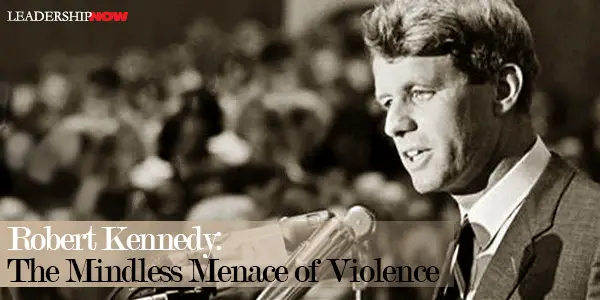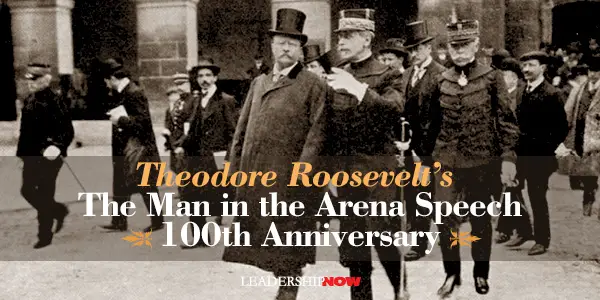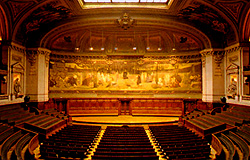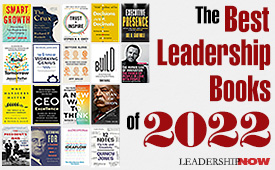 Leading Blog | Posts by Category |
 Leading Blog | Posts by Category |
01.11.11

Robert Kennedy: The Mindless Menace of Violence
ON April 5, 1968, two months before his own death, Robert F. Kennedy gave a speech at the City Club of Cleveland in Cleveland, Ohio titled the "The Mindless Menace of Violence." For a nation trying to come to grips with the assassination of Martin Luther King Jr. the day before, Kennedy tried to frame the issues associated with violence. He reflected on wrong values and a society in which its citizens had become disconnected; people “with whom we share a city, but not a community.” This is a time of shame and sorrow. It is not a day for politics. I have saved this one opportunity, my only event of today, to speak briefly to you about the mindless menace of violence in America which again stains our land and every one of our lives. It is not the concern of any one race. The victims of the violence are black and white, rich and poor, young and old, famous and unknown. They are, most important of all, human beings whom other human beings loved and needed. No one - no matter where he lives or what he does - can be certain who will suffer from some senseless act of bloodshed. And yet it goes on and on and on in this country of ours. Why? What has violence ever accomplished? What has it ever created? No martyr's cause has ever been stilled by an assassin's bullet. No wrongs have ever been righted by riots and civil disorders. A sniper is only a coward, not a hero; and an uncontrolled, uncontrollable mob is only the voice of madness, not the voice of reason. Whenever any American's life is taken by another American unnecessarily - whether it is done in the name of the law or in the defiance of the law, by one man or a gang, in cold blood or in passion, in an attack of violence or in response to violence - whenever we tear at the fabric of the life which another man has painfully and clumsily woven for himself and his children, the whole nation is degraded. "Among free men," said Abraham Lincoln, "there can be no successful appeal from the ballot to the bullet; and those who take such appeal are sure to lose their cause and pay the costs." Yet we seemingly tolerate a rising level of violence that ignores our common humanity and our claims to civilization alike. We calmly accept newspaper reports of civilian slaughter in far-off lands. We glorify killing on movie and television screens and call it entertainment. We make it easy for men of all shades of sanity to acquire whatever weapons and ammunition they desire. Too often we honor swagger and bluster and wielders of force; too often we excuse those who are willing to build their own lives on the shattered dreams of others. Some Americans who preach non-violence abroad fail to practice it here at home. Some who accuse others of inciting riots have by their own conduct invited them. Some look for scapegoats, others look for conspiracies, but this much is clear: violence breeds violence, repression brings retaliation, and only a cleansing of our whole society can remove this sickness from our soul. For there is another kind of violence, slower but just as deadly destructive as the shot or the bomb in the night. This is the violence of institutions; indifference and inaction and slow decay. This is the violence that afflicts the poor, that poisons relations between men because their skin has different colors. This is the slow destruction of a child by hunger, and schools without books and homes without heat in the winter. This is the breaking of a man's spirit by denying him the chance to stand as a father and as a man among other men. And this too afflicts us all. I have not come here to propose a set of specific remedies nor is there a single set. For a broad and adequate outline we know what must be done. When you teach a man to hate and fear his brother, when you teach that he is a lesser man because of his color or his beliefs or the policies he pursues, when you teach that those who differ from you threaten your freedom or your job or your family, then you also learn to confront others not as fellow citizens but as enemies, to be met not with cooperation but with conquest; to be subjugated and mastered. We learn, at the last, to look at our brothers as aliens, men with whom we share a city, but not a community; men bound to us in common dwelling, but not in common effort. We learn to share only a common fear, only a common desire to retreat from each other, only a common impulse to meet disagreement with force. For all this, there are no final answers. Yet we know what we must do. It is to achieve true justice among our fellow citizens. The question is not what programs we should seek to enact. The question is whether we can find in our own midst and in our own hearts that leadership of humane purpose that will recognize the terrible truths of our existence. We must admit the vanity of our false distinctions among men and learn to find our own advancement in the search for the advancement of others. We must admit in ourselves that our own children's future cannot be built on the misfortunes of others. We must recognize that this short life can neither be ennobled or enriched by hatred or revenge. Our lives on this planet are too short and the work to be done too great to let this spirit flourish any longer in our land. Of course, we cannot vanquish it with a program, nor with a resolution. But we can perhaps remember, if only for a time, that those who live with us are our brothers, that they share with us the same short moment of life; that they seek, as do we, nothing but the chance to live out their lives in purpose and in happiness, winning what satisfaction and fulfillment they can. Surely, this bond of common faith, this bond of common goal, can begin to teach us something. Surely, we can learn, at least, to look at those around us as fellow men, and surely we can begin to work a little harder to bind up the wounds among us and to become in our own hearts brothers and countrymen once again.
Posted by Michael McKinney at 11:01 AM
04.23.10

Theodore Roosevelt’s The Man in the Arena Speech 100th Anniversary  The speech emphasized his belief that the success of a republic rested not on the brilliance of its citizens but on disciplined work and character; the quality of its people. He told the audience: “Self-restraint, self-mastery, common sense, the power of accepting individual responsibility and yet of acting in conjunction with others, courage and resolution—these are the qualities which mark a masterful people.” And importantly, a democracy needed leaders of the highest caliber in order to hold the average citizen to a high standard. They were to do this not by words alone but by their deeds as well. “Indeed, it is a sign of marked political weakness in any commonwealth if the people tend to be carried away by mere oratory if they tend to value words in and for themselves, as divorced from the deeds for which they are supposed to stand.” Roosevelt firmly believed that one learned by doing. It is better to stumble than to do nothing or to sit by and criticize those that are “in the arena” he explained. “The poorest way to face life is with a sneer.” It is a sign of weakness. “To judge a man merely by success,” he said, “is an abhorrent wrong.” The famous paragraph from that speech, reproduced below, expressed the standard by which he judged himself and others: It is not the critic who counts; not the man who points out how the strong man stumbles, or where the doer of deeds could have done them better. The credit belongs to the man who is actually in the arena, whose face is marred by dust and sweat and blood; who strives valiantly; who errs, and comes short again and again, because there is no effort without error and shortcoming; but who does actually strive to do the deeds; who knows the great enthusiasms, the great devotions; who spends himself in a worthy cause; who at the best knows in the end the triumph of high achievement, and who at the worst, if he fails, at least fails while daring greatly, so that his place shall never be with those cold and timid souls who know neither victory nor defeat. Read the complete text of that speech: Citizenship in a Republic by Theodore Roosevelt Trivia: Theodore Roosevelt was the first President to fly an airplane, to own a car, to have a telephone in his home and travel outside the borders of the U.S. while still in office.
Posted by Michael McKinney at 12:39 AM
|
BUILD YOUR KNOWLEDGE


How to Do Your Start-Up Right STRAIGHT TALK FOR START-UPS 
Grow Your Leadership Skills NEW AND UPCOMING LEADERSHIP BOOKS 
Leadership Minute BITE-SIZE CONCEPTS YOU CAN CHEW ON 
Classic Leadership Books BOOKS TO READ BEFORE YOU LEAD |
|